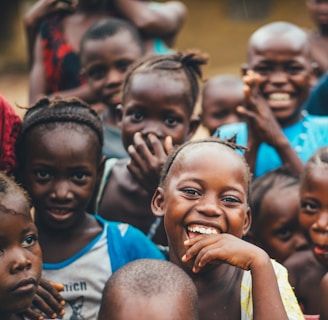
Origins of Learning Theories: Locke and Rousseau
3.2. Going back briefly to when people started caring about children's learning and development
ISSUE 3
VJ Tlakula
6/25/20255 min read


A Brief Jump Back Into History
I’d like to take us back for a moment to Issue 1 where we discussed how people’s thinking around children, and their purpose was changing in Europe. I mentioned then two main characters: Locke and Rousseau. They were some of the most influential philosophers in this change of thinking about children. This change of the times is what not only introduced children’s rights, but also got people interested in understanding them better. What they were capable of, how they thought and how they worked and how best to protect childhood became studied a lot more.
Locke and Rousseau are useful to know at least a bit about as their thinking formed the basis of much psychological theory and practise today. This, like the concept of the child, is useful knowledge as the consequences thereof impact how children in society are raised and educated. Theirs were some of the basic popular thoughts and understandings about children from before the scientists got involved and either proved or disproved them. These two philosophers were among the first influential proponents of the idea that childhood was a unique stage with unique requirements. And they took it a step further to describe some of these unique elements. They were likely not the only ones, but certainly among the most influential.
John Locke
Locke (1632-1714), who came first, believed that children came into the world as a completely blank slate, a ‘tabula rasa’. This meant that children were extremely impressionable and, therefore, mouldable. To him, the baby comes into the world with no rules for thinking or being, and no predisposition. They cannot become what they want and are entirely dependent on the world around them to guide them. Kind of like getting a blank piece of paper on which you could draw absolutely anything you wanted.
To him, children could be moulded and shaped, given all their beliefs and abilities about the world by the adults around them. They were not born predetermined to become a specific person, rather, they were entirely dependent on their social world to give them that. He also believed that due to their ‘blank-slate’ nature, children developed exclusively according to their unique life experiences.
Now, we know that biologically and genetically children are not an entirely blank slate. They will have genetic predispositions and biological things prompting their development, its direction and manner (refer to Issue 2). However, there is still value to Locke’s statement that children are sensitive to the world around them. They arrive as brand-new humans with no history or past to inform their thinking, so their environment influences their development socially and biologically (think Issue 1 Part 4 and Issue 2 Part 4).
While Locke was incorrect about children being a blank slate, he was right about them being vulnerable and needing to be shown everything about the world. He advocated for adults to guide their children’s development, and in the correct direction. He encouraged the intentional development of the young mind through training children to think critically and correctly. This training had to be considerate of their stage in life and capacity, and harsh methods couldn’t be used as they wouldn’t aid in development.
To him, children needed stimulation and careful, guided experience to encourage their learning and growth. That way, they would learn through joyful methods, enjoying the learning experience. Because children needed to learn and develop through experience according to Locke, he believed that sensory experiences (like play) were useful.
Jean-Jacques Rousseau
Rousseau’s (1712-1778) main contribution to how we thought about children and how they learn was a focus on children learning through exploration and experiences. While this sounds similar to Locke, he didn’t have exactly the same foundation of belief. He never believed that children were a blank slate. Rather, he believed that children thought differently, and this thinking changed as they grew. Therefore, education needed to be able to respond and adapt to that ever-changing nature.
Rousseau advocated the idea that children go through distinct, concrete phases in their development, which is a concept that many psychological theorists carry. This belief, in its most simplistic state, holds that development is similar to climbing up a ladder or stairs. You cannot reach the next level without first passing through the one before it, and you need the level before it to be able to climb up. If you cannot pass the one level, you will be stuck there forever as it will be impossible for you to progress. Essentially, every single level depends on the other.
So, in development, this means that a child needs to have successfully learnt everything they need to learn in a specific phase/stage of their development before they can enter the next one and be able to succeed at that next one. This stage is also clearly marked out. For example, it could be that between age 0-2, there are some major, specific things your brain needs to learn and is equipped to learn. If it doesn’t learn it during this stage, once the stage is over, you’ve missed it.
While this belief is not 100% correct (as biology has shown us about the resilience of the learning brain), it does have its usefulness, like Locke. Research has shown that there are certainly important, sensitive periods in development (the brain and the first 1001 days shows us that). It also means that children need to be raised and educated in a way which takes their current stage (think capacity and capability) into consideration and seeks to maximise that stage as much as possible. Not too much or too little of them is expected from them and they are still protected.
This idea of stages of development is also correlated with brain development. Remember how in Issue 2, I discussed that various parts of the brain are growing at different rates, some parts of the brain will reach full maturity before others, and the full development of the brain is only completed at around age 25. So, we can understand that developmental stage does relate to age and children's developmental stage is unique and involves a progression.
The Takeaway
As I've stated from Issue 1, it is always useful to know where we’ve come from historically to understand the present that we are in and be able to envision where we might be going in the future. Understanding a bit of the foundations of those who study learning is always useful in that. It contributes to forming a complete picture and basis of understanding as we go ahead.
Two things that both these philosophers were correct about was that children’s learning, and, therefore, development needed to be correctly guided by the adults around them. Also, that stimulation experience was key in guiding that learning and development well. There’s that influential environment again. As we continue this series, we will see how experience constantly plays a crucial role in learning and development.
Share your Comments Below!
Please feel free to reach out with any comments, questions, and child-related stories
Celebrating childhood and development
© Ntsako Wholeness and Joy in Childhood 2025. All rights reserved.
Copyright Vutlhari Joy Tlakula 2025. All Rights Reserved.


